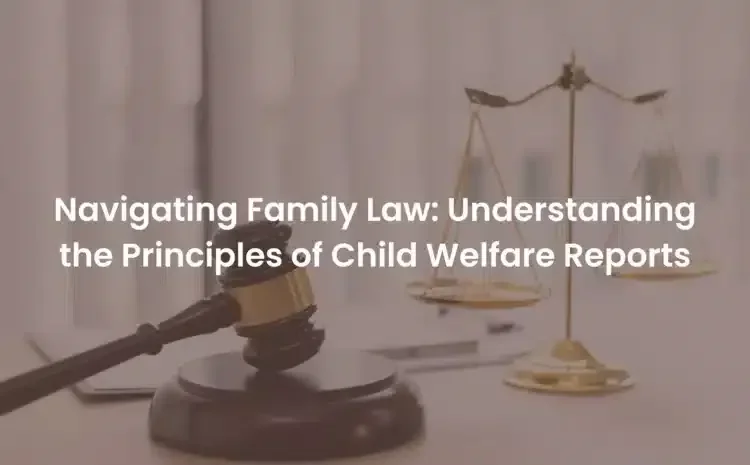Navigating Family Law: Understanding the Principles of Child Welfare Reports
Introduction: In the realm of family law, decisions regarding the welfare of children are of utmost importance. Child welfare reports serve as valuable tools in providing insights into a child’s well-being and circumstances in legal proceedings. Let’s explore the principles that underpin child welfare reports and their significance in guiding court decisions in family law cases.
Principle 1: Objective Assessment Child welfare reports are expected to provide an objective assessment of the child’s situation, free from bias or external influences. Professionals tasked with preparing these reports are required to conduct thorough evaluations based on factual observations and interactions with the child and relevant individuals involved in the child’s life.
Principle 2: Expertise and Insight Professionals preparing child welfare reports bring a wealth of expertise and insight to the table. Their observations and assessments offer valuable perspectives on the child’s well-being, family dynamics, and any potential issues that may impact the child’s welfare. Their input serves as a crucial source of information for the court to consider.
Principle 3: Confidentiality and Sensitivity Confidentiality and sensitivity are paramount principles in the preparation and handling of child welfare reports. These reports often contain sensitive information obtained through confidential interviews and observations. Maintaining confidentiality is essential to create a safe space for children to express their views honestly without fear of repercussions.
Principle 4: Complementary Evidence Child welfare reports are intended to complement other evidence presented in family law proceedings. They provide a unique perspective on the child’s experiences and interactions, offering a holistic view of the child’s situation. By considering child welfare reports alongside other evidence, courts can make well-informed decisions that prioritize the child’s best interests.
Principle 5: Judicial Consideration When relying on child welfare reports in decision-making, courts must carefully consider the content of the reports and their implications. Judges should assess the observations and recommendations presented in the reports, ensuring that they align with the overall objective of safeguarding the child’s welfare. Any discrepancies or contradictions with other evidence should be scrutinized and clarified as needed.
Conclusion: Child welfare reports play a vital role in family law cases by providing valuable insights into the well-being and circumstances of children involved in legal proceedings. By upholding principles of objectivity, expertise, confidentiality, and judicial consideration, these reports contribute to informed decision-making that prioritizes the best interests of the child. Understanding and respecting the principles of child welfare reports is essential in navigating the complexities of family law and ensuring the welfare of children remains at the forefront of legal proceedings.

